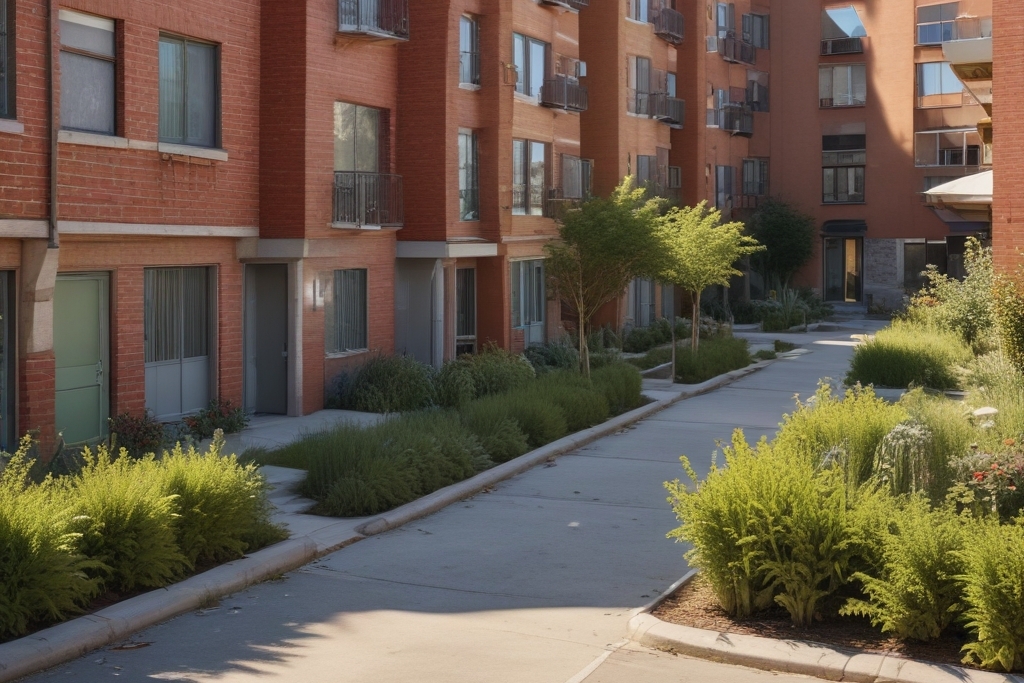The Importance of Low-Income Affordable Housing in Modern Society

In today’s rapidly urbanizing world, the need for low-income affordable housing has become more critical than ever. As cities expand and the cost of living rises, many individuals and families find themselves struggling to secure safe and affordable housing. This article explores the significance of low-income affordable housing, the challenges faced in its provision, and potential solutions to address this pressing issue.
Low-income affordable housing refers to residential units that are made available at a cost that is manageable for individuals and families with limited financial resources. These housing options are essential for ensuring that all members of society have access to safe, stable, and dignified living conditions. The importance of such housing cannot be overstated, as it directly impacts the well-being, health, and economic stability of low-income households.
One of the primary challenges in providing low-income affordable housing is the increasing cost of land and construction. As urban areas grow, the demand for land rises, driving up prices and making it difficult to develop affordable housing projects. Additionally, construction costs have surged due to factors such as labor shortages, rising material costs, and regulatory hurdles. These challenges necessitate innovative approaches and strong policy support to ensure that affordable housing can be developed and maintained.
Government intervention plays a crucial role in addressing the affordable housing crisis. Policies such as inclusionary zoning, which requires developers to include a certain percentage of affordable units in new projects, can help increase the availability of low-income housing. Additionally, government subsidies and tax incentives can make it financially viable for developers to invest in affordable housing projects. Public-private partnerships are another effective strategy, combining the resources and expertise of both sectors to create sustainable housing solutions.
Non-profit organizations and community-based initiatives also contribute significantly to the provision of low-income affordable housing. These organizations often work directly with communities to identify housing needs and develop tailored solutions. By leveraging local knowledge and fostering community engagement, non-profits can create housing projects that are not only affordable but also culturally and socially appropriate for the residents.
Innovative housing models, such as modular construction and co-housing, offer promising solutions to the affordable housing challenge. Modular construction involves building housing units off-site in a controlled environment, which can reduce costs and construction time. Co-housing, on the other hand, emphasizes shared spaces and resources, allowing residents to benefit from lower living costs and a strong sense of community. These models, along with other creative approaches, can help bridge the gap between housing demand and supply.
The benefits of low-income affordable housing extend beyond the individual households that directly benefit from it. Affordable housing can lead to more stable communities, as residents are less likely to move frequently in search of cheaper rent. This stability fosters stronger social ties, better educational outcomes for children, and improved mental and physical health for residents. Moreover, affordable housing can stimulate local economies by increasing disposable income for low-income families, which can be spent on goods and services within the community.
Despite the clear benefits, there are still significant barriers to the widespread provision of low-income affordable housing. NIMBYism (Not In My Backyard) is a common obstacle, where residents oppose affordable housing projects in their neighborhoods due to misconceptions about the impact on property values and community safety. Overcoming these barriers requires education and advocacy to highlight the positive effects of affordable housing and dispel myths.
Furthermore, addressing the affordable housing crisis requires a comprehensive and coordinated approach. This includes not only increasing the supply of affordable units but also ensuring that existing housing stock is preserved and maintained. Policies that protect tenants from eviction and rent hikes, as well as programs that provide financial assistance for housing costs, are essential components of a holistic strategy to support low-income households.
Low-income affordable housing is a fundamental component of a just and equitable society. It provides stability, security, and opportunities for individuals and families who might otherwise be marginalized by the high cost of living. By addressing the challenges and leveraging innovative solutions, governments, non-profits, and communities can work together to ensure that everyone has access to safe and affordable housing. The benefits of such efforts extend beyond individual households, contributing to stronger, more resilient communities and a healthier, more inclusive society.



